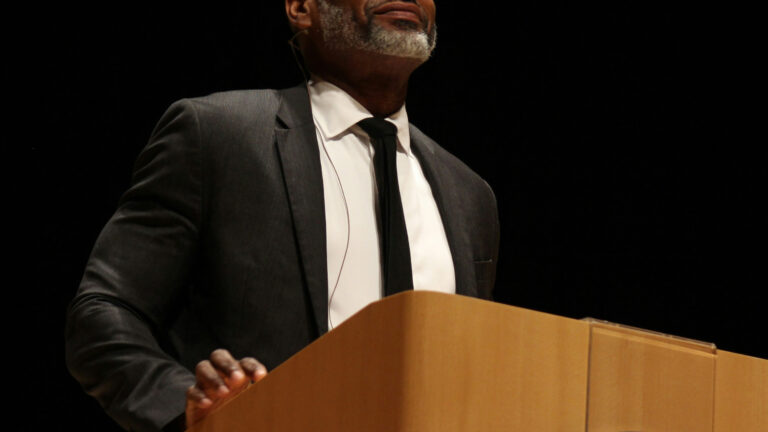When something unusual happens, the natural reaction of mankind is to reach for an answer—sometimes an answer beyond the ordinary or official position. This gives rise to conspiracy theories. These are not a modern phenomena but an old one. Conspiracy theories are alternative explanations for crises, and they’ve been around for centuries. But what makes them so attractive? Why do most of us find ourselves quietly, if not vocally, entertaining them?
Christians have either zealously preached conspiracy theories or ungraciously belittled those who believe them.
Merriam-Webster defines a conspiracy as the belief that a secret of great importance is being kept from the public. According to Britannica, it is the attempt to link tragic events to the actions of a small powerful group, while rejecting the accepted narrative of the phenomenon. The COVID-19 pandemic has led to the spread of countless conspiracy theories. Many Christians have been caught on both sides of these narratives, either zealously preaching them or ungraciously belittling those who believe them.
Most of Us Are Wondering: ‘What’s Really Going On?’
Suddenly everyone is an expert on virology, immunology, and vaccines. Many Christians are unsure who to turn to for an explanation. They don’t know who to trust. For the internet is full of innumerable, self-proclaimed experts, all of whom are saying very different things. We are living through what might also be called an infodemic. These explanations more often than not fly in the face of what we are hearing from the WHO, our governments, and actual medical professionals.
The information that we choose to believe has the power to shape us.
The information that we choose to believe has the power to shape our beliefs, behaviours, and feelings. The mental distress experienced throughout the different waves and variants of COVID-19 is in part related to the information we have believed. In many ways, conspiracy theories have worsened the effects of COVID-19.
Conspiracy theories give meaning to things that scare us, filling in the gaps in our knowledge. For they either attempt to or simply assume to know everything. But only God is all-knowing. We cannot know or explain everything. These theories are therefore evidence that the world is looking for meaning—at all times, but perhaps particularly in this moment. The world hungers for answers. We have a great need to understand and explain—conspiracy theories fill that void.
There are at least four reasons why conspiracy theories are attractive, most of which flow out of the challenge I’ve outlined above: we are desperate for an explanation.
1. Conspiracy Theories Offer Certainty
As I’ve already indicated, people are seeking answers in times of uncertainty. Conspiracy theories offer explanations for those in crisis, for those feeling like they’ve lost control. They explain it all away. But answers in turn shape people’s behaviour.
They have shaped people’s response to COVID-19, especially regarding safety procedures and attitudes towards the vaccines. This has far reaching consequences, with people refusing the vaccine for no good reason. Others have spread the virus because of their denial and the linked decision to continue living as normal.
Christians as gospel witnesses have a responsibility to safeguard others.
Christians as gospel witnesses have a responsibility to safeguard others and not spread the virus. In failing here, we fail to be witnesses of Christ.
2. We Crave to Be ‘in the Know’
Linked with the above point, people feel safer than others when they believe in a conspiracy theory. For unlike others, you feel in control because of what you know. This is what secret knowledge or information breeds: superiority. This makes conspiracy theories very persuasive. Suddenly one now feels like they are in control of whatever happens to them.
Suddenly one now feels like they are in control.
But only God possesses comprehensive knowledge. In his wisdom he keeps certain knowledge from us. As mankind we are limited in what we can know. The claim to have all the answers only puffs us up and proliferates pride.
3. Leadership Failure, on Numerous Fronts
Many leaders, both political and religious, are spreading conspiracy theories. Because these men and women are often looked up to by their followers as “saviours,” conspiracy theories are attractive and less likely to be inspected. People believe what their leader says, even when the leader is not certain.
When you share what we cannot verify, there may be eternal consequences.
When authoritative, trusted, and influential sources of information argue for conspiracy theories, they gain traction. These conspiracy theories are harmful as they destroy families and relationships. Suddenly a father becomes a stranger, a friend becomes an enemy, and a neighbour becomes distant. Conspiracy theories divide society to the core.
As a leader, when you share what we cannot verify, there may be eternal consequences. Jesus warned that we will give account for every word (Matthew 12:36). This should, therefore, make us far slower to share what we cannot know with absolute certainty.
4. Narcissism
As a kind of obverse to the above point, people are increasingly narcissistic. Many Africans have lost trust in civil leaders and governments, often because of corruption. The failure of these institutions has driven people to find secret meaning for evil occurrences.
The failure of governments has driven people to find secret meaning for evil occurrences.
This self-centeredness is seen in the fragmentation of the world. Fragmentation based on wealth, education, and opportunity. All these have failed society, so people pick the alternatives. It is a case of ‘them versus us.’ The privileged versus the underprivileged; the rich verse the poor; the educated versus the uneducated. This leads to the instinctive rejection of whatever comes from across the political divide. Sadly, throughout the continent this is presently evident from many people’s gross suspicions towards their leaders and self-assured confidence in their own understanding of events.
Christian, Be Responsible
Christians have a responsibility in addressing conspiracy theories. Jesus will hold us accountable for spreading information that we cannot verify. When Christians spread conspiracy theories they are spreading lies and doing harm. It is therefore important for Christians to discern true and false information; and then, spread true information only. This is because in word and deed a Christian is a witness of Christ Jesus. But in spreading conspiracy theories, a Christian is a being a false witness.
When Christians spread conspiracy theories they are spreading lies and doing harm.
Paul’s word to the church in Philippi should encourage us, “Finally, brothers and sisters, whatever is true, whatever is noble, whatever is right, whatever is pure, whatever is lovely, whatever is admirable—if anything is excellent or praiseworthy think about such things” (Philippians 4:8). Christians should be committed to the truth.














